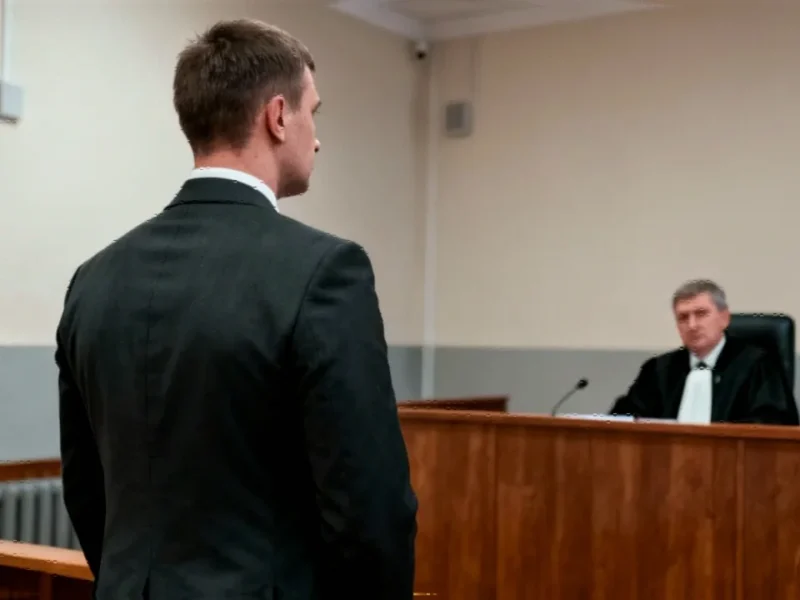Note: Featured image is for illustrative purposes only and does not represent any specific product, service, or entity mentioned in this article.
Judicial Independence Clashes With Cross-Border Security Concerns
A Polish court has ignited diplomatic tensions by ordering the release of Ukrainian national Volodymyr Zhuravlev, who Germany alleges participated in the sabotage of the Nord Stream natural gas pipelines. The 45-year-old was detained near Warsaw last month on a German arrest warrant but walked free following a judge’s ruling that highlights the growing complexity of European security cooperation amid the ongoing conflict in Ukraine.
The decision represents a significant setback for German investigators who had been seeking Zhuravlev’s extradition to face charges related to the September 2022 explosions that destroyed the pipelines connecting Russia and Germany beneath the Baltic Sea. At the time of their destruction, these conduits represented the world’s largest offshore gas infrastructure, making their sabotage one of the most consequential energy security incidents in recent European history.
Broader Implications for European Energy Security
The case unfolds against a backdrop of reconfigured energy alliances and security priorities across Europe. Since the pipeline explosions, European nations have accelerated their transition to alternative energy sources while grappling with the security vulnerabilities exposed by critical infrastructure attacks. This incident highlights how rapidly evolving security threats are testing the limits of international judicial cooperation.
Legal experts note that the Polish court’s decision reflects the challenging balance between supporting Ukraine’s defense against Russian aggression and maintaining consistent application of international law. The ruling suggests that some judicial systems may be reluctant to prosecute individuals accused of actions that, while potentially illegal, are perceived as aiding the Ukrainian war effort. For those tracking recent developments in European security cases, this represents a significant precedent.
Technological Dimensions of Critical Infrastructure Protection
The Nord Stream sabotage has prompted renewed focus on securing underwater energy infrastructure against sophisticated threats. Energy companies and governments are now investing heavily in advanced monitoring systems and remote detection technologies to protect vulnerable pipelines and cables. These security enhancements represent just one aspect of broader industry developments in critical infrastructure protection.
Security analysts have noted that the incident demonstrates how vulnerable undersea infrastructure remains to determined attackers. The technical sophistication required to damage pipelines at depth suggests the involvement of actors with significant resources and expertise, raising questions about how similar emerging technologies might be exploited by malicious actors targeting critical systems.
Wider Context: Energy, Technology and Geopolitics
The Zhuravlev case intersects with multiple strategic domains where technology and geopolitics converge. As European nations work to secure their energy independence from Russia, they’re simultaneously navigating complex legal and diplomatic challenges. This situation mirrors the intricate balance required in other sectors where rapid technological adoption must be matched by appropriate regulatory frameworks.
The timing of this judicial decision coincides with significant strategic partnerships in the technology sector that are reshaping how organizations approach security and infrastructure protection. Meanwhile, advances in computational power, such as those demonstrated by the latest processor innovations, are enabling more sophisticated monitoring and detection capabilities that could help prevent similar incidents in the future.
Looking Forward: Legal Precedents and Security Cooperation
The Polish court’s ruling establishes an important legal precedent that may influence how similar cases are handled across Europe. Legal experts are closely watching whether Germany will appeal the decision or pursue alternative legal avenues to bring Zhuravlev to trial. The outcome could significantly impact future cross-border security cooperation within the European Union.
As the investigation into the Nord Stream sabotage continues, the case highlights the evolving nature of international law in an era of hybrid threats and geopolitical confrontation. The tension between national judicial independence and international security cooperation represents one of the most challenging aspects of modern European governance, with implications that extend far beyond this single case.
This article aggregates information from publicly available sources. All trademarks and copyrights belong to their respective owners.



